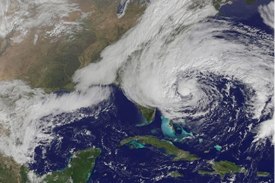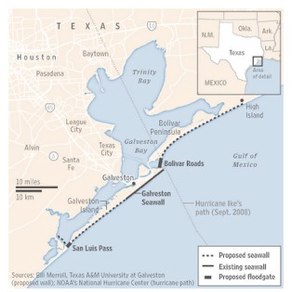 Karl Ritter, Associated Press
Karl Ritter, Associated Press
STOCKHOLM (AP) — During a year with a monster storm and scorching heat waves, Americans have experienced the kind of freakish weather that many scientists say will occur more often on a warming planet.
And as a re-elected president talks about global warming again, climate activists are cautiously optimistic that the U.S. will be more than a disinterested bystander when the U.N. climate talks resume Monday with a two-week conference in Qatar.
“I think there will be expectations from countries to hear a new voice from the United States,” said Jennifer Morgan, director of the climate and energy program at the World Resources Institute in Washington.
The climate officials and environment ministers meeting in the Qatari capital of Doha will not come up with an answer to the global temperature rise that is already melting Arctic sea ice and permafrost, raising and acidifying the seas, and shifting rainfall patterns, which has an impact on floods and droughts.

(Galveston Daily News)
They will focus on side issues, like extending the Kyoto protocol — an expiring emissions pact with a dwindling number of members — and ramping up climate financing for poor nations. They will also try to structure the talks for a new global climate deal that is supposed to be adopted in 2015, a process in which American leadership is considered crucial.
Many were disappointed that Obama didn’t put more emphasis on climate change during his first term. He took some steps to rein in emissions of heat-trapping gases, such as sharply increasing fuel efficiency standards for cars and trucks. But a climate bill that would have capped U.S. emissions stalled in the Senate.
“We need the U.S. to engage even more,” European Union Climate Commissioner Connie Hedegaard told the Associated Press. “Because that can change the dynamic of the talks.”
The world tried to move forward without the U.S. after the Bush Administration abandoned the Kyoto Protocol, a 1997 pact limiting greenhouse emissions from industrialized nations. As that agreement expires this year, the climate curves are still pointing in the wrong direction.
The concentration of heat-trapping gases like carbon dioxide has jumped 20% since 2000, primarily from the burning of fossil fuels like coal and oil, according to a U.N. report released this week. And each year, the gap between what researchers say must be done to reverse this trend, and what’s actually being done, gets wider.
Bridging that gap, through clean technology and renewable energy, is not just up to the U.S., but to countries like India and China, whose carbon emissions are growing the fastest as their economies expand.
But Obama raised hopes of a more robust U.S. role in the talks when he called for a national “conversation” on climate change after winning re-election. The issue had been virtually absent in the presidential campaigning until Hurricane Sandy slammed into the East Coast.
(Read more of this story at USA Today)
OTHER LOCAL AREA HEADLINES:
- First Total Energy USA Conference Begins Tuesday (KUHF Public Radio)
- Area curbs illegal Sexually Oriented Businesses (Chron.com)
- BP, workers head to court over criminal charges in Gulf disaster (Chron.com)
- Movember moment: Diagnosed with testicular cancer, Houston man embarks on fight of his life (Houston Culture Map)
- Harris County vacates Law Center floors to avoid installing sprinklers (Chron.com)
- County law library gets new look, amenities (Chron.com)
- Toy drive to benefit abused, neglected kids (KTRK 13 News)
- Man’s best friend rules the runway at Citizens for Animal Protection’s Celebrity Paws Gala (Houston Culture Map)
STATE, NATION & WORLD:
- Drought drives rainwater collection across Texas (Austin Statesman)
- Lawmakers to review Texas Open Records Act (AP)
- Shopper who pulled gun at San Antonio mall within rights, cops say (San Antonio Express)
- 10 foreign-born soldiers in Texas become US citizens (AP)
- Small Business Saturday is a big hit (USA Today)
- As drug industry’s influence over research grows, so does the potential for bias (Washington Post)
- Hopes of Home Fade Among Japan’s Displaced (New York Times)
- Thousands protest after Bangladesh fire traps workers, kills 112 (NBC)
